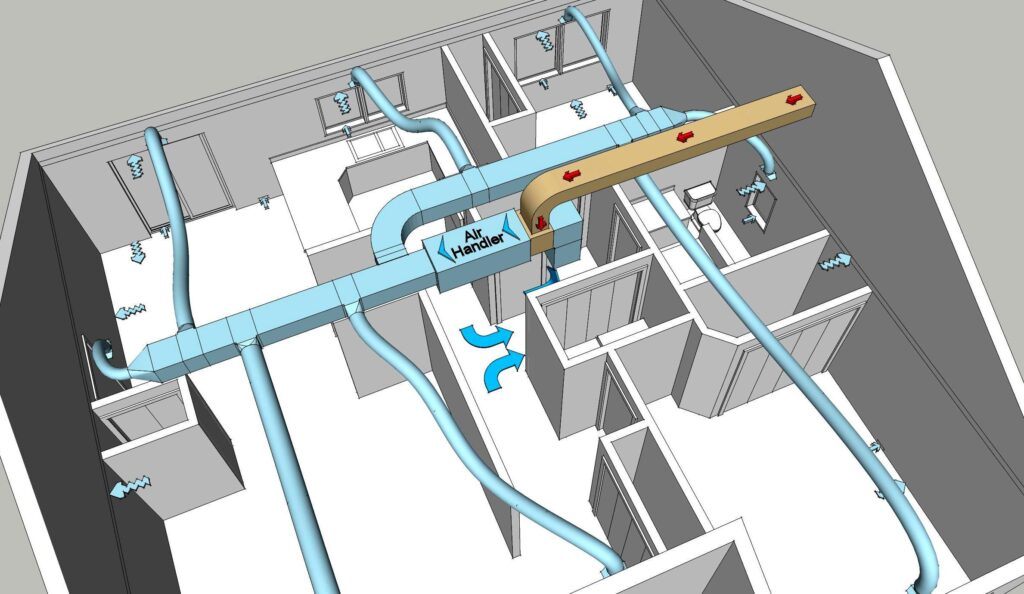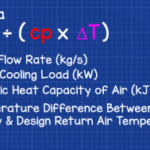In designing air conditioning systems, the first challenge is to understand the components that affect the building heat gain or heat loss – this process is called heating or cooling load estimation. The reactive challenge is to “design” controlled processes to maintain the desired condition or state-point within the occupied space – these are usually called the system processes that use psychrometrics.
Estimating Cooling & Heating Load
Load estimates are the summation of heat transfer elements into (gains) or out of (losses) the spaces of a building. Each heat transfer element is called load components, which can be assembled into one of three basic groups, external space loads, internal space loads and system loads. To properly understand the workings of the various external, internal and system load components, the following items need to be gathered from a set of plans, existing building surveys or occupant interviews:
v Building square-footage and volume
v Orientation of the building (sun effects on surfaces)
v Year round weather data (design conditions, heat transfer)
v Use of the spaces within the building (offices, conference room, lab, data center)
v Hours of operation (occupied and unoccupied)
v Thermostat set points (main comfort parameter)
v Dimensions of walls, roofs, windows and doors
v Construction materials (gather densities, external color and U-factors or describe material type layer by layer (R-values)
v Stairways and elevators (floor-to-floor openings)
v People occupancy and activity, and when they are present
v Lighting intensity and hours used
v Motor and appliance sizes or kW and times they are used
v Ventilation needs (IAQ and exhaust makeup)
The total cooling load is than determined in kW or tons* by the summation of all of the calculated heat gains. Along with psychrometrics, load estimating establishes the foundation upon which HVAC system design and operation occur.
*One ton is equivalent to heat extraction rate of 12000 Btu’s/hr and 1 kW is equivalent to 3414 Btu’s/hr.


